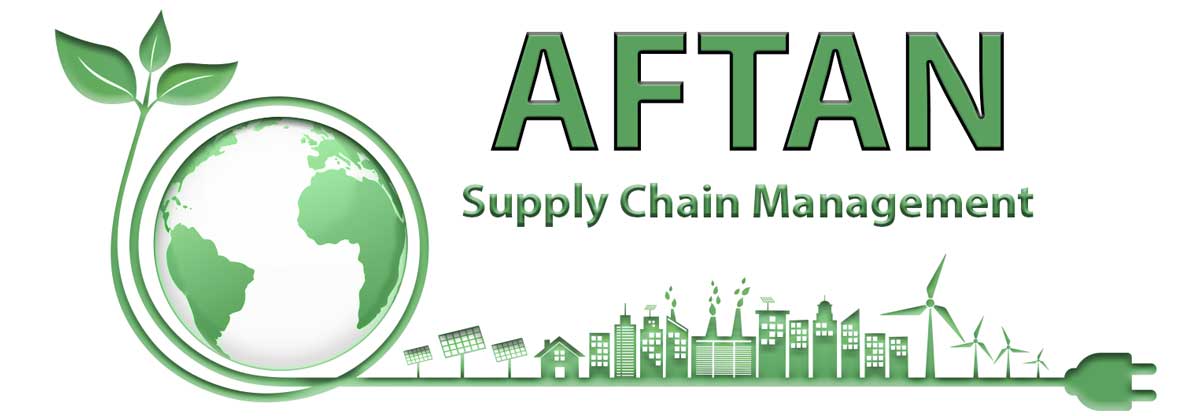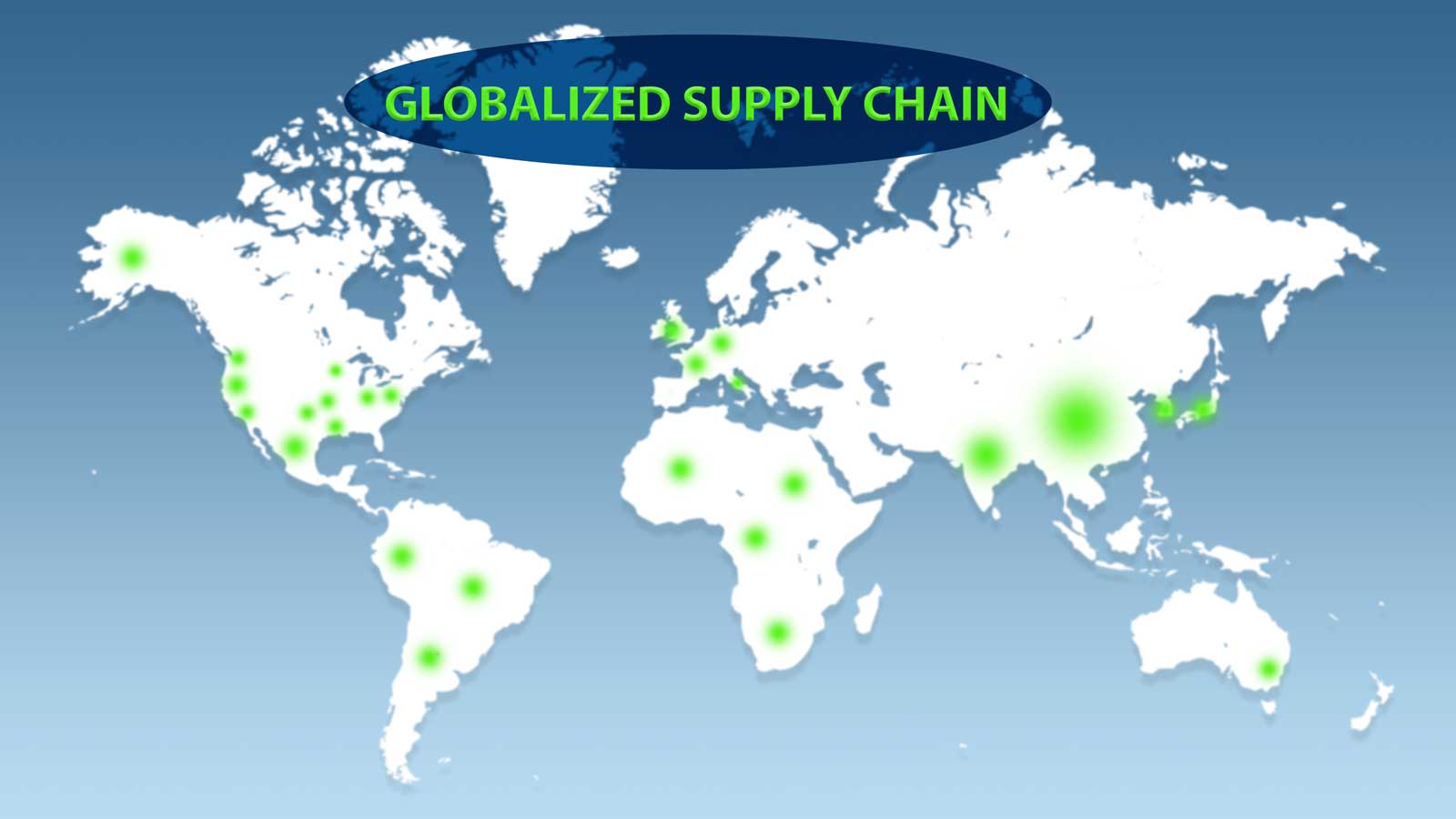Supply Chain Management Consulting and Services
Lebanon County and Lebanon, Pennsylvania
Empowering Sustainable Solutions for a Greener Future
839 Alleghenyville Road Mohnton, PA 19540-7708
Tel. 610-914-1356 email: lpeterson@aftan.com


 A Supply Chain Wake-Up Call from COVID-19
A Supply Chain Wake-Up Call from COVID-19
Supply Chain Management has always been crucial for long-term success. However, the 2020 COVID-19 Pandemic has challenged even the best-managed companies to re-examine and, in some cases, completely overhaul their Supply Chains.
Most companies have globalized some or almost all of their Supply Chain to reduce costs and remain competitive. Those companies found that plant and other operations closings and the government confiscation of raw materials, production facilities, and inventory wiped out the Reliability and Resiliency of their Supply Chains.
We do not offer you a magic wand. We do offer you another knowledgeable pair of eyes with decades of manufacturing experience to help you adjust and rethink your Supply Chain to reestablish Reliability and Resiliency.
You can never profitably eliminate all risk in your Supply Chain. However, we can help you take a holistic approach while still placing primary focus on the most critical considerations in your Supply Chain Network to mitigate your risk. Here are things to consider.
 What Is Supply Chain Management?
What Is Supply Chain Management?
The purpose of a Supply Chain is to produce and distribute products to consumers on time. The advent of Amazon has made this goal even more challenging because customers often expect next-day or same-day delivery. Companies use Supply Chain Management to develop, refine, and optimize Supply Chains to
- reduce costs;
- reduce complexity; and
- accelerate the production cycle;
to achieve a competitive advantage and mitigate risk. Supply Chain Optimization works hand-in-glove with Continuous Process Improvement.
Well-optimized Supply Chains allow companies to make and ship only the quantity of products the company can sell, thereby reducing
- inventory,
- production costs,
- shipping,
- insurance,
- storage costs; and
- obsolescence.
It’s crucial to take a holistic approach to Supply Chain Management because the breakdown of any of the Supply Chain components can have a devastating effect. The classic example is that an otherwise finished car doesn’t roll off the production line if it lacks the horn button.
Many companies tend to confuse the Supply Chain with Logistics. However, Logistics is just one component of the Supply Chain Network.
 What Is the Supply Chain Network?
What Is the Supply Chain Network?
- Transporting and Distributing Raw Materials and Finished Goods;
- People and Functions including:
- Product Development;
- Sourcing;
- Logistics;
- Marketing;
- Production and Quality Control;
- Finance;
- Human Resources;
- Customer Service; and
- Data Processing and Information Services.
- Entities in the Extended Supply Chain including:
- Producers;
- Vendors;
- Warehouses;
- Transportation Companies;
- Distribution Centers; and
- Retailers;
- External Information Networks between Supply Chain Entities to incorporate mutually beneficial processes and intel;
- Resources;
- Political Considerations; and
- More recently, Sustainability Concerns, including Life Cycle Management and ISO 14001.
 What Is Supply Chain Reliability?
What Is Supply Chain Reliability?
 What Is Supply Chain Resilience?
What Is Supply Chain Resilience?
 Supply Chain Risk Management
Supply Chain Risk Management

Lisa Peterson, Ph.D., PE, MBA, is the President of Pennsylvania-based Aftan Engineering. Lisa is uniquely qualified to assist you with optimizing and mitigating risk in your Supply Chain. She has decades of experience in managing complex Supply Chains, holds a Lean Six Sigma Black Belt certification, and has held top management positions. Lisa is also a professional Sustainability, ISO 14001, Continuous Process Improvement, and Additive Manufacturing Consultant with a Ph.D. in Environmental Engineering. Read Lisa's Resume.
From this thought process, an approach of having backup plans is key to the success of the problem. This technique has allowed her success where others fail.
Lisa has instilled in me values and techniques by leading by example. Her drive and resolve are hard to keep up with. She is a role model for others to follow.
Lisa’s ethics are second to none often putting in more work and time than her peers. She knows hard work is the key to success. She knows her resources to help her accomplish tasks in a timely manner. Obstacles are not an issue and are deemed part of the solution process. Rather than let these get in the way, Lisa leverages them to find multiple solutions to the problem.
From this thought process, an approach of having backup plans is key to the success of the problem. This technique has allowed her success where others fail.
Lisa has instilled in me values and techniques by leading by example. Her drive and resolve are hard to keep up with. She is a role model for others to follow.
Lisa's ethics are second to none often putting in more work and time than her peers. She knows hard work is the key to success."
Mark H., Engineering and Production Manager
Sinking Spring, PA 04/14/19


 Copyright 2025 Aftan Engineering - All Rights Reserved
Copyright 2025 Aftan Engineering - All Rights Reserved